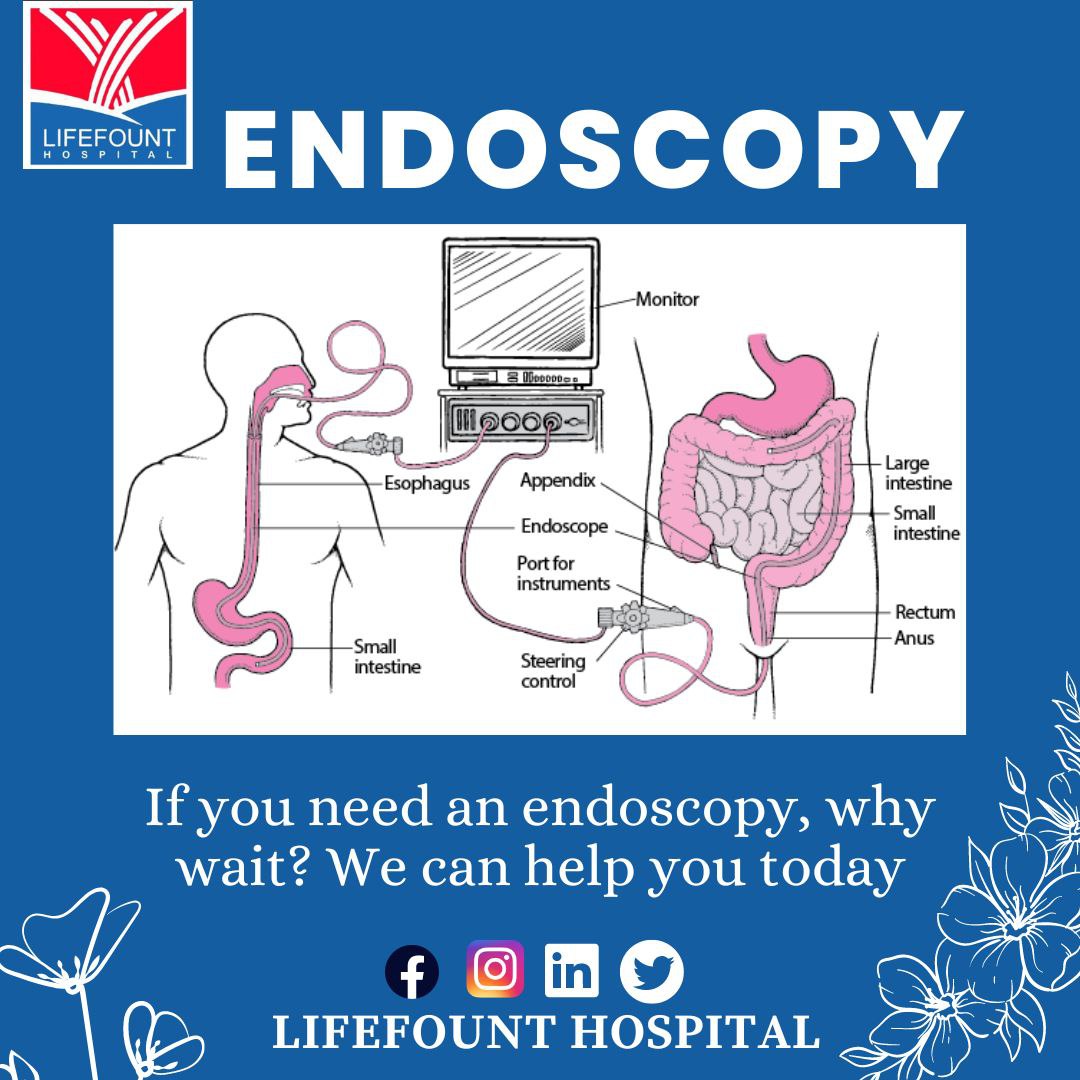Upper GI endoscopy is a procedure in which a doctor uses an endoscope—a flexible tube with a camera—to see the lining of your upper GI tract. A gastroenterologist, surgeon or other trained health care professional performs the procedure, most often while you receive light sedation to help you relax.
Why do doctors use upper GI endoscopy?
1. It allows doctors to make a diagnosis:
An endoscopy is used to diagnose conditions that affect the digestive system. Endoscopy can help identify ulcers, bleeding, celiac disease, blockages, inflammation, and tumors. It can help find the cause of unexplained symptoms, such as heartburn, abdonimal pain, bleeding, nausea, vomiting, and pain. An endoscopy is more accurate than gastrointestinal X-rays for detecting abnormal growths such as cancer.
Click here to speak with Lifefount Administration Unit about your symptoms.
2. An endoscopy is used to treat some conditions:
Endoscopy is used to treat digestive tract problems. If certain disorders are found during the procedure, it's often possible to treat them at the same time. Your gastroenterologist can pass special tools through the endoscope to treat problems in the patient's digestive system, such as removing a foreign object, widening a narrow esophagus, or clipping off a polyp.
3. An endoscopy is a safe procedure:
An endoscopy is a safe procedure. It's considered one of the safest medical procedures and carries a low level of risk. Rare complications include problems with sedation, bleeding, infection, and perforation, though these complications are generally associated with pre-existing conditions.
4. An endoscopy is a quick procedure:
An endoscopy is a quick procedure. An upper endoscopy takes about 20 minutes. You will be awake during the procedure, but you will take medication to relax you (a sedative) before the test. You will remain in the recovery area 30 to 40 minutes after the procedure. Someone will have to drive you home afterward.
5. An endoscopy isn't usually painful:
An endoscopy is nothing to fear. The procedure is not usually painful, and most patients only experience mild discomfort, similar to a sore throat or indigestion. You may be given local anesthesia to numb a specific area of your body. It is safe to take acetaminophen for the minor discomfort after the procedure.
If you need an endoscopy, why wait? We can help you today! Call Lifefount hospital on 234-816-884-789 today to make an appointment at our hospital. You will experience exemplary service and state-of-the-art care at Lifefount hospital
